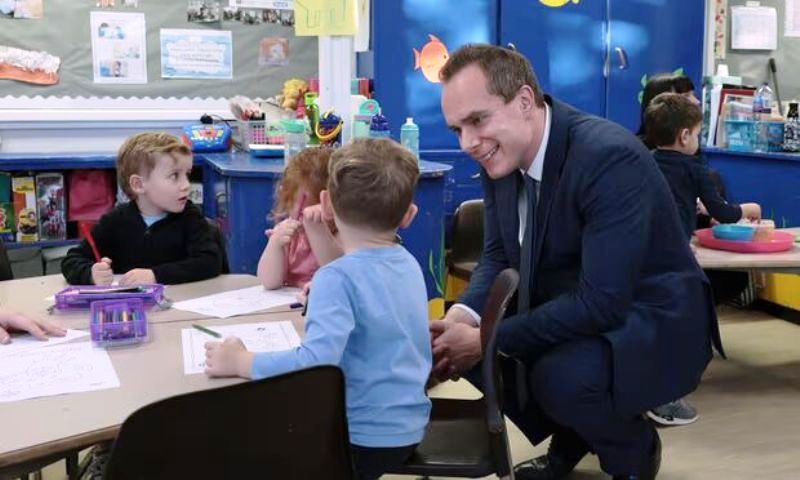
In a nursery called Rascals Day Nursery in Leigh-on-Sea, a man works to improve childcare in England. He talks to a group of little kids busy with their crafts and asks them, “What are we doing here?”
This man is David Johnston, and his job is to ensure the government’s plan for more childcare happens. The plan is to give 15 hours of free childcare to parents of two-year-olds starting in April, and by September 2025, all eligible kids from nine months to five years will get 30 free hours.
It’s a tough job because some people who teach young kids are worried about not having enough staff, which might make the plan ineffective. Johnston can’t promise that all parents will get the hours they want, but he believes the government is doing everything possible to make it happen.
Recently, the government said they would give £400 million to help with this plan. This money will cover an increase in the minimum wage, but some people who provide childcare say that the money given to local groups is insufficient for three- and four-year-olds.
These childcare providers also don’t know exactly how much money they will get from local groups, even though parents ask them many questions. So, even with the plan and the money, there are still challenges.
A recent Early Education and Childcare Coalition report found that more than half of the staff they talked to were considering leaving their jobs. When asked if there will be enough childcare places, the minister said, “Yes, I believe so.”
The government did some research and thinks that the workforce is stable. There have been changes to the early years foundation stage framework, which some people are worried about. The CEO of the Early Years Alliance called it a concerning direction for early years policy. The minister believes that grants for childminders and an extensive recruitment campaign in the new year will make it easier for them to operate and find new staff.
Both the minister and the childcare sector agree that the status of the people working in it, primarily women, needs to be raised. They are always talking about how to do that. The minister thinks the idea that it’s just “babysitting” needs to change. Instead, the focus should be on the positive impact on children in their first five years.
When asked if higher pay and better career progression would help, the minister thinks the increase in the minimum wage will help, but there are discussions about introducing a career framework like in schools. Critics say that the hours are only for working parents, leaving out the poorest children who benefit the most from early education. The minister disagrees, mentioning the 15 hours available for disadvantaged children and increased universal credit.
The Office for Budget Responsibility (OBR) estimates that 60,000 more people will join the workforce by 2027-28 due to the expansion. The minister hopes this will happen, as he sees local people welcoming the offer, making their work lives easier or enabling them to return to work.

